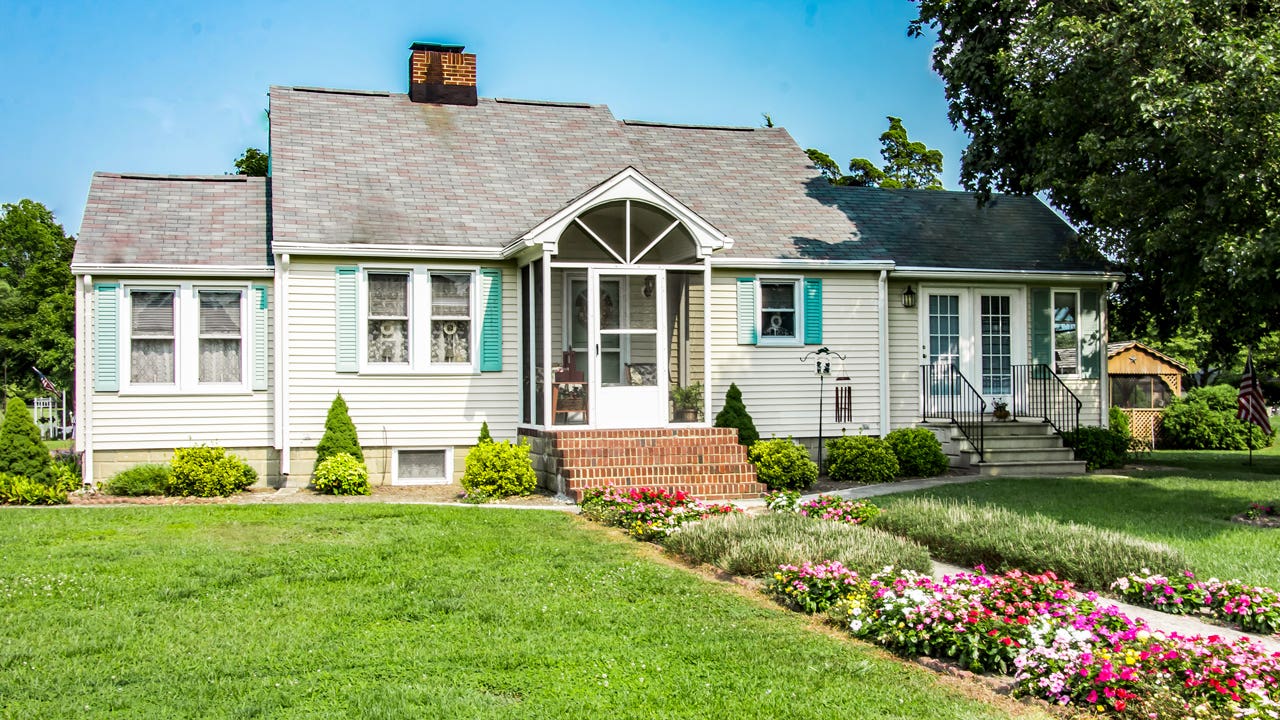Selling a home in Delaware

If you’re thinking about selling your home in Delaware, there is good news and bad news to consider. First, the good news: Property values have been soaring here. Data from Delaware Realtors shows that the median sale price in the state was $350,000 in August 2022 — a more-than 18 percent increase in just one year. Now, the bad news: The housing market is cooling off quickly as mortgage rates surge. As a result, homes in the state have been sitting on the market for longer, and active available inventory has increased.
While it’s still technically a seller’s market, selling a home in the First State is getting more challenging. Plus, it costs a lot to sell a house here: Delaware’s closing costs averaged 5.4 percent of the purchase price in 2021, according to ClosingCorp, due largely to the state’s high transfer taxes. So, before you make plans to sell and move on to somewhere new, read on for a complete guide to the steps you need to take to minimize your costs and maximize your profit when selling a house in Delaware.
Are you ready to sell?
As economic jitters continue to make headlines, you’re probably trying to answer an essential question: Sell now or wait? If you’re thinking about waiting in the hopes that your property value will continue skyrocketing, you might want to think again: A new forecast from CoreLogic points to a more modest 3.2 percent appreciation in housing value over the next year.
In addition, figuring out whether you should list is about more than your current property. You also need to think about where you’re going next. If you’re trying to sell your house while buying another, you’ll need to be ready for the challenges of dealing with high mortgage rates and limited inventory. And if you’re planning on leaving Delaware for a new state, make sure to crunch the numbers with Bankrate’s cost of living calculator to understand how far your income will take you in a new place.
Preparing to sell
Once you feel comfortable with a plan for what’s next, it’s time to get your home ready to impress.
Is it worth upgrading your home before you sell?
Major upgrades, like a luxury kitchen remodel, are likely only worth it for your own enjoyment. Most home renovation projects will only return a fraction of their cost in your sale price. Plus, they take a long time to complete, and who knows what the market will look like in six months? You’re better off considering quick, low-cost improvements to make your property more appealing.
What should you repair before you sell?
Are there any issues that would turn you off as a buyer? Remember that most buyers don’t want to spend more money after they hand over a down payment and closing costs, so you should address obvious problems, like peeling paint or a leaking bathroom faucet, prior to listing. However, you don’t have to fix everything when you sell your house. Ask a professional real estate agent to walk through the house and offer a candid opinion: What areas are likely to raise a red flag for buyers?
Should you pay to stage your home?
One of the quickest ways to make your house stand out is hiring a professional home stager. Staging your home can make a difference if the rooms feel cluttered with all the stuff you’ve acquired over the years. And on the opposite end, staging can also have a big effect if you’ve already moved out and the home is vacant. Empty rooms can look less inviting to buyers, who might not be able to envision a blank space coming to life. The cost of home staging varies depending on the scope of the work, but it can be well worth the investment: A survey from the Real Estate Staging Association shows that 73 percent of staged properties sold for more than their list price in 2021.
When is the best time to sell a house in Delaware?
Data from Redfin shows that over the past two years, the best time to sell a house in Delaware has been the month of June. That’s when properties have spent the fewest days on the market — just 9 or 10 days — before going to contract. That follows a trend for most housing markets around the country: Buying activity tends to pick up when the weather is nicer and children are out of school.
Find a local Delaware real estate agent
Delaware may be small, but there are nuances to selling a home in the state’s three counties. For example, sellers in New Castle County have a big advantage: There was less than 1 month of housing inventory in August 2022 per Delaware Realtors, which helped reduce the days on market to just 17. Sussex County is a different story with more than 2 months of supply; houses there are sitting on the market for more than a month. These numbers are evidence that real estate is a local game, which means you need a local expert.
While a real estate agent costs money — typically 3 percent to your own agent and another 3 percent to the buyer’s — data shows that you’re likely to get that money back, and then some. The most recent research from the National Association of Realtors shows that agent-assisted sales wound up getting $58,000 more than FSBO (For Sale By Owner) listings. It’s about time as much as money. Selling a home requires lots of work, which you likely don’t have time for if you’ve already got a full-time job.
Price your home competitively
If you’re trying to figure out what your house is worth, the answer is however much someone is willing to pay for it. One way to find out is to review recent comps in the area with your real estate agent. These will give you a sense of what other buyers have been willing to pay for similar properties in your area.
You also want to consider present market conditions. Buyers are feeling the impact of higher mortgage payments due to higher interest rates, so you need to develop a pricing strategy that attracts interest despite those concerns.
Documents and disclosures in Delaware
Delaware home sellers must complete the state’s property condition report, a seven-page form that includes all your knowledge about the home and any defects. This is a thorough report that includes everything from the type of amp service in the electrical system to the date of the last roof installation, and more. In addition, if your home is part of a homeowners association, be ready to hand over documents about the financial health of the organization and any bylaws that a new owner will need to follow.
Need to sell your home fast?
If time is not on your side, consider these two approaches to sell a house fast.
- Sell it for cash: Rather than deal with the slow process of waiting for an individual buyer to secure financing, there are plenty of companies that buy houses for cash. Local ones are appropriately named — We Buy Houses in Delaware, Delaware House Buyers and 302 House Buyers (a nod to the local area code), for example — these real estate investment firms are looking for opportunities to convert properties into rentals or fix them up and sell them for a profit.
- List it as-is: One of the reasons it often takes a long time to close a real estate deal is drawn-out negotiations regarding repairs and concessions. An as-is listing eliminates that back-and-forth, speeding up the timeline to closing.
The closing
Closing day is exciting, but it’s not cheap. Delaware has some of the highest closing costs in the country:nearly $18,000 in 2021, according to data from ClosingCorp. It’s important to note that the figure does not include Realtor fees — that cost falls on your shoulders, and it will likely be around 6 percent of your home’s purchase price (unless you have managed to negotiate a lower commission rate). You’ll also need to think about some other fees before you hand over the keys.
Cost of selling a home in Delaware
- Transfer taxes: Delaware has the highest state real estate transfer tax in the country: 4 percent of the purchase price, with 2.5 percent going to the state and 1.5 percent to the county. You’ll probably split the cost with the buyer down the middle, so on a $350,000 sale, the seller’s portion of transfer taxes would add up to $7,000.
- Title insurance: The buyer might aim to negotiate the cost of a title insurance policy, but you don’t have to agree. In most cases in Delaware, the buyer will pick up this part of the tab.
- Attorney fees: State law requires you to hire a real estate lawyer in Delaware. The fee will depend on their hourly rate and the time your deal takes from start to close.
- Concessions: If the buyer’s home inspection uncovers any problems with the home, they may request that you pay for a portion of their closing costs to cover repairs. It’s up to you whether to agree, but if you do, this money will come out of your proceeds.
Take the first step
Now, it’s time to interview a few real estate agents to help you get started on your journey. Ask questions to help you understand how each one is approaching this confusing housing market, and what steps they will take to put you on a pathway to a successful sale.
FAQs
-
Yes, sellers in every state have some form of closing costs to cover. In addition to paying the real estate agents involved in the transaction, there is a hefty 4 percent real estate transfer tax in Delaware. In most deals, the seller splits that bill 50/50 with the buyer. So, on a $500,000 sale, you would owe $10,000 of transfer taxes. Depending on your contract with the buyer, you may be responsible for paying other recording fees or covering the cost of their title insurance as well. And there will also be lawyer fees to pay.
-
Yes, you must hire a lawyer to sell your house here. A ruling from the Supreme Court of Delaware mandates that an attorney must be involved in all aspects of real estate, including drafting and reviewing contracts, documents involved in the transfer of ownership and overseeing the closing.
Why we ask for feedback Your feedback helps us improve our content and services. It takes less than a minute to complete.
Your responses are anonymous and will only be used for improving our website.
You may also like

What is a moratorium in insurance?





